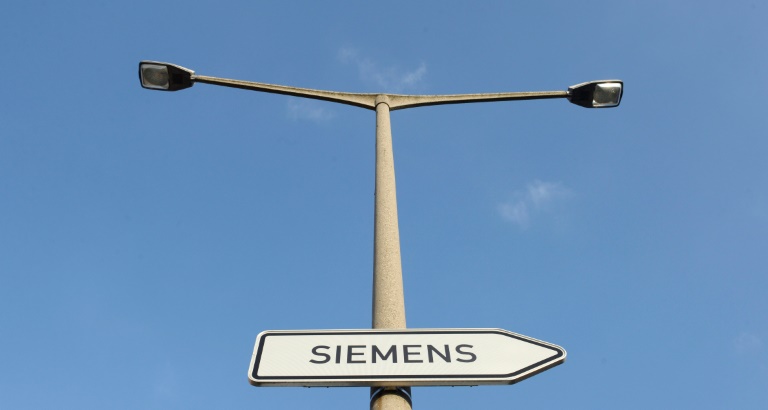German industrial conglomerate Siemens is expected Thursday to announce a massive restructuring plan in its limping energy business that could see thousands of employees lose their jobs.
Unions have vowed to resist any layoffs, as they would follow on the heels of flourishing annual results for the sprawling group.
“We have to tackle structural issues in some individual businesses” in the coming financial year, chief executive Joe Kaeser said last week — even as Siemens reported 11-percent growth in net profit for 2016-17, to 6.2 billion euros ($7.3 billion).
The Munich-based group — whose products range from trains to wind turbines to medical equipment — has already announced some 6,000 job cuts in its wind power unit.
Falling prices in major markets like India and the US bore most of the blame for the layoffs, Siemens said of the division, which merged with Spain’s Gamesa earlier this year.
Meanwhile, German weekly Manager Magazin reported that Siemens’ fossil fuels division, one of Siemens’ largest with some 30,000 employees, could shutter 11 of its 23 sites worldwide.
Markets for the unit’s products such as natural gas turbines were shrinking as a result of “global energy trends” away from fossil fuels, the group said.
Powerful union IG Metall fears managers could slash a four-digit number of jobs, most of them in Germany.
Kaeser, who has already presided over massive changes at Siemens since taking the reins in 2013, said only that “painful cuts” would be announced at a Thursday works council meeting.
He added that he would try to “soften the blow” by reassigning or retraining workers.
“We will have to start a discussion of creative forms of resistance” if bosses press on with site closures and layoffs, IG Metall board member Juergen Kerner warned in a Wednesday interview with WirtschaftsWoche magazine.
– ‘Discontent and doubts’ –
Many of the sites that could be on Kaeser’s hit-list are in Germany’s generally poorer eastern states, still not recovered from decades of Communist mismanagement and an arduous reunification with the west since 1990.
Among them is the famous “Dynamowerk” in Berlin’s Spandau district, where Siemens was founded in the early 20th Century and which now employs 11,000 of its 351,000 workers.

Unions have vowed to resist any layoffs at Siemens, as they would follow on the heels of flourishing annual results for the sprawling group
Closing eastern sites “could stoke the discontent and the doubts” that helped far-right party Alternative for Germany into parliament with 12.6 percent of the vote in September elections, outgoing economy minister Brigitte Zypries wrote to Kaeser in a letter seen by Bild newspaper.
For its part, IG Metall accuses Siemens of being “irresponsible” by showing thousands of employees the door while the group as a whole is turning healthy profits — and by failing to consult closely with workers, as was the norm at big German conglomerates for decades.
The group laid off some 15,000 people in 2013, partly as a consequence of Germany’s decision to abandon nuclear energy in favour of renewables.
Under Kaeser’s tenure, whole divisions have been abandoned or sold off, including household appliances, telecoms networks and nuclear and solar energy.
Tearing up a 2008 agreement that ruled out layoffs short of an “existential crisis” at the firm “would disquiet colleagues in all the divisions,” union boss Kerner said, especially when “the group is doing well” overall.
Siemens workers don’t see why they should suffer the fate of employees at its struggling major competitor General Electric.
The US firm announced Monday a restructuring of its own with thousands of job cuts around the globe, as it narrows its focus to aeronautics, health and energy.






